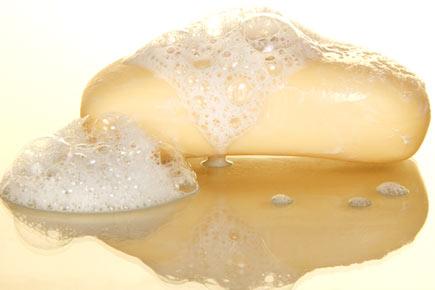An anti-microbial agent found in common household soaps, shampoos and toothpastes may be finding its way inside human noses, where it promotes the colonisation of staphylococcus aureus bacteria

New York: Your daily soap can be a harbinger of bacteria buildup in your nose!
ADVERTISEMENT
You read it right.
An anti-microbial agent found in common household soaps, shampoos and toothpastes may be finding its way inside human noses, where it promotes the colonisation of staphylococcus aureus bacteria and could predispose some people to infection.

Representational picture
“Triclosan, a man-made compound used in a range of anti-bacterial personal care products such as soaps, toothpastes, kitchen surfaces, clothes and medical equipment, was found in nasal passages of 41 percent of adults sampled,” said Blaise Boles, an assistant professor at University of Michigan.
A higher proportion of subjects with triclosan also had S. aureus colonisation.
S aureus could promote infection in some populations such as people undergoing surgery.
Triclosan has been around for the past 40 years and has been incorporated into many anti-bacterial household products within the past decade.
Other studies have found traces of triclosan in human fluids including serum, urine and milk.
Some previous researches have found that high concentrations of triclosan can disrupt the endocrine system and decrease heart and skeletal muscle function.
It is really common in hand soaps, toothpastes and mouthwashes but there is no evidence it does a better job than regular soap.
“This agent may have unintended consequences in our bodies. It could promote S. aureus nasal colonisation, putting some people at increased risk for infection,” Boles cautioned.
“Our data suggests a re-evaluation of triclosan in consumer products is urgently needed,” the authors wrote in a study published in mBio, a journal of the American Society for Microbiology.
 Subscribe today by clicking the link and stay updated with the latest news!" Click here!
Subscribe today by clicking the link and stay updated with the latest news!" Click here!






